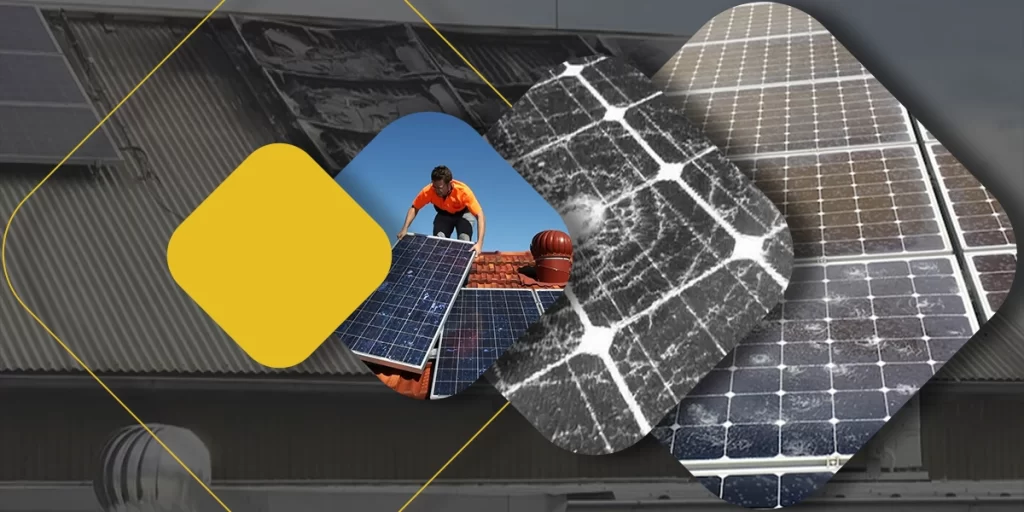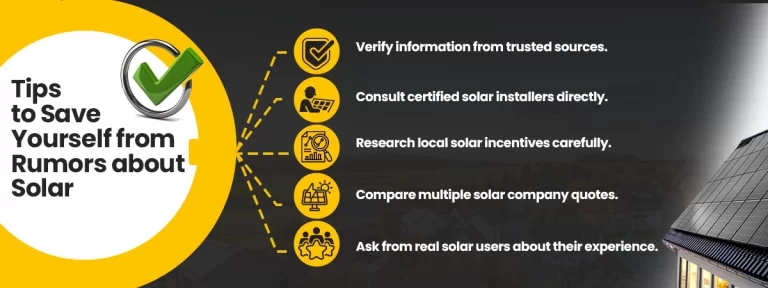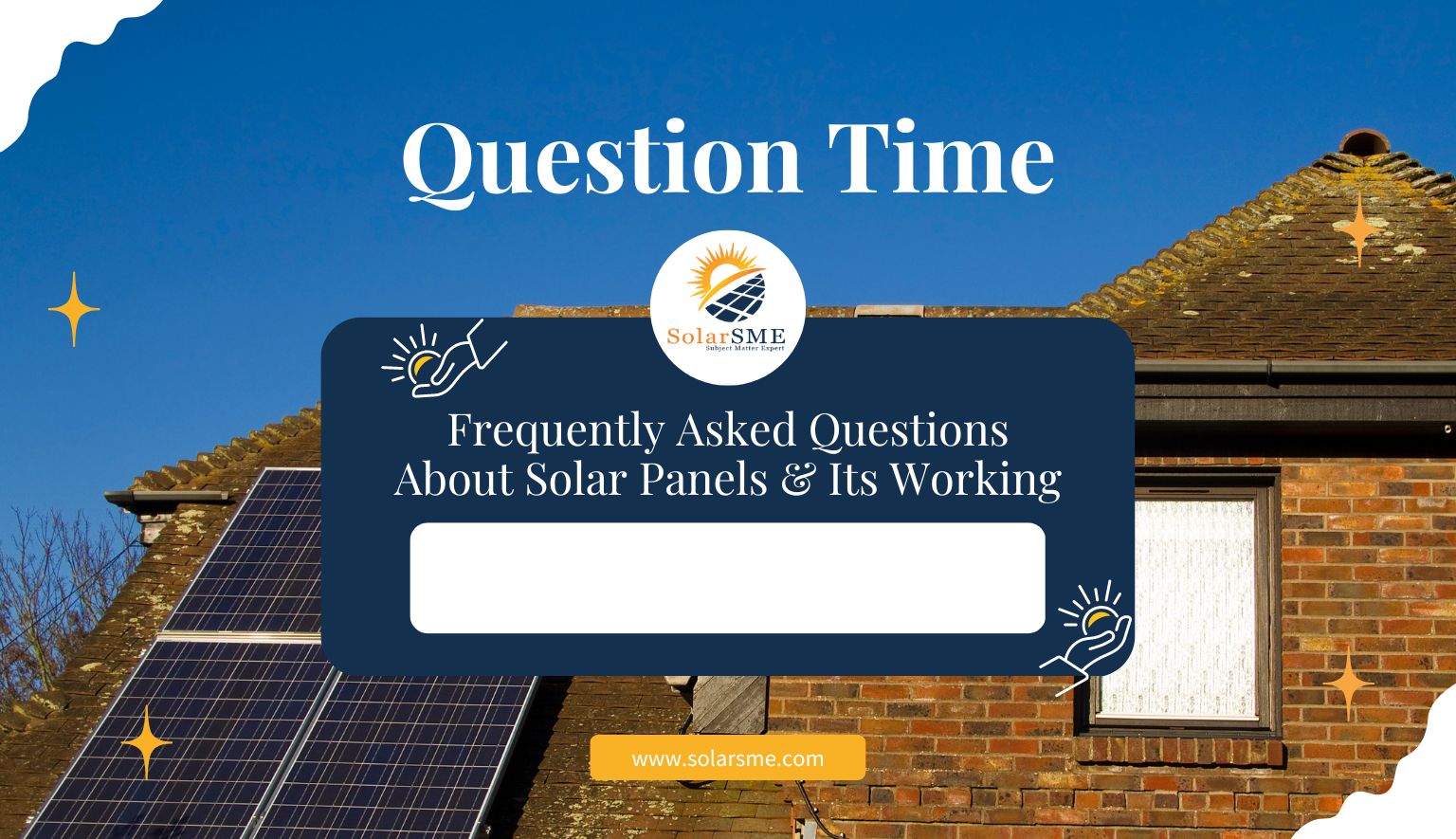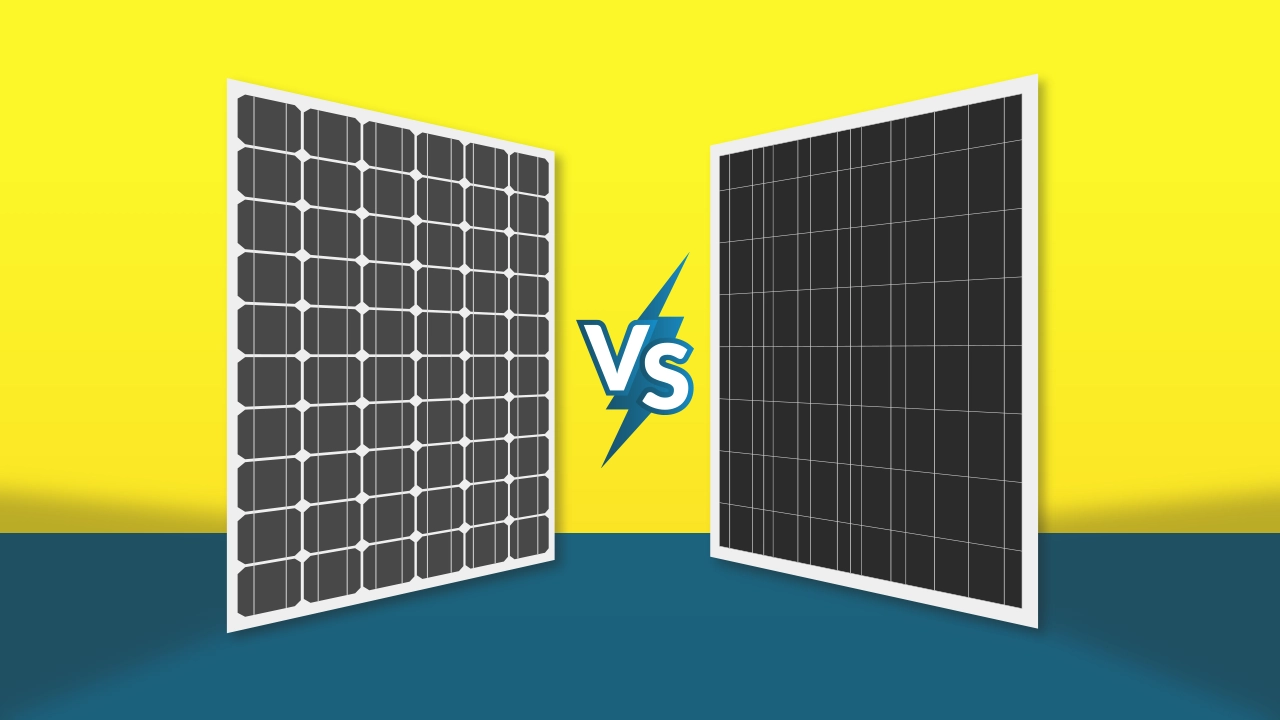- Updated On: June 21, 2025
Bursting Common Solar Myths: All the Facts You Should Know
Solar energy has become mainstream in powering homes and businesses in the U.S., but many still hesitate to invest due to some common solar myths floating around them. Some think that solar panels only function in sunny states, while others believe they are too expensive or difficult to maintain. Whether it’s about solar panels not working in winter or not being able to pay back, these myths continue to mislead solar adopters. The truth? Most of these fables are outright false. With emerging technology and local and federal incentives, solar is now more affordable and efficient.

In this article, we will uncover the truth behind the most common solar myths, breaking down the facts and presenting to you a clear picture of what going solar entails. It’s time to no longer trust misinformation to get in the way of your solar potential.
Top Solar Myths & Facts
Let’s discuss some top false statements you commonly hear around you when you talk about solar:
Myth # 1 - Solar only works in sunlight and is useless at night or when it is cloudy.
Fact: Solar panels generate power in all weather.
Solar technology works in almost any weather, including rain and snowy days, as some sunlight still reaches the earth. Solar panels often work best in cold, sunny climates, as heat prevents sunlight from being converted into power. Also, keep in mind that solar power systems don’t gather heat; they gather light. Additionally, you can add solar battery storage to your solar panels, like Tesla Powerwall 3, to get power at night. Unlike traditional backup generators, this is your clean-energy backup; your power will continue to run even if your neighborhood’s power goes out. Moreover, you can sell your excess energy back to the grid and earn credits, which leads to very low electric bills if you use grid power at night.
Myth # 2 - The government is offering free solar panels.
Fact: Government doesn’t offer free solar panels but provides tax credits, rebates, and affordable solar incentives.
The state or federal government does not pay the cost of installing solar panels at home, but through the best solar incentives and rebates, they lower the initial cost of buying a solar panel system. The Federal Investment Tax Credit (ITC), for instance, deducts 30% of the cost of your solar installation from your federal tax liability. Your state or local government may also offer extra solar incentives, such as tax credits, rebates, or performance-based incentives (PBIs), depending on where you live. Also, some states offer low-income solar programs to encourage low-income families with low interest rates for solar investments.
Myth # 3 - Solar panels aren’t efficient enough.
Fact: PV systems are efficient enough to meet all your power needs.
A few customers ask why solar panels aren’t 100% efficient after seeing that their efficiency rate is only 22%. Instead of producing electricity, some sunlight will be deflected off the panel or converted to heat. Besides that, materials in solar cells do not get infrared light. Although a solar cell with a world record of room-temperature efficiency under normal sunshine is 39%, the cells are too costly to be an economic option for solar panels on houses.
Also, even the 15-20% efficient rooftop solar panels can produce enough power to fulfill your energy needs. However, as technology advances, there are bifacial solar modules that capture energy from both sides. They are more efficient than traditional panels but for specific settings like solar carports or utility projects, etc. If you want to invest in solar but are still waiting for some more advancements, you may lose some of the best solar incentives and 30% solar tax credits due to policy changes.
Myth # 4 - Solar is too expensive.
Fact: Solar is affordable, low-maintenance, and offers long-term energy savings.
Over the past few years, the price of solar panels and accessories decreased due to modern technology. Also, there are federal and state solar rebates that help you reduce your solar installation cost. Moreover, if you do not have enough cash in hand, there are flexible financing options like solar loans. You are not required to pay the full amount upon installation. You can pay it over time. Furthermore, solar energy systems are a worthy investment as they do not require regular maintenance or other expenses. Even after the solar payback period, you can enjoy free electricity for the future.
Myth # 5 - Going solar means going off the grid.
Fact: Most residential solar systems remain grid-tied for reliability and net metering benefits.
Although it is possible to install an off-grid solar panel system using solar batteries, most residential solar panel systems are grid-tied. This enables you to use the solar energy your system generates during the day and then use the grid power to get electricity at night. But it does not mean that solar cannot fulfill your home energy requirements. With a grid-tied solar power system, you can use solar power and send excess power back to the grid to earn solar credits. In case of cloudy weather, rain, or at night, when solar does not produce enough electricity, you can use grid power. And these credits will lead to low or sometimes no electric bills for using grid power. Net metering policies can vary by state and utility, so it’s a good idea to check with your utility company about the specifics of their net metering before going solar.
Myth # 6 - Solar panels won’t work in the winter.
Fact: Due to the lower temperatures, they work more effectively during the winter.
Indeed, sunlight is necessary for solar panels to produce electricity. Also, it is true that snow-covered solar panels produce less electricity. However, it is a common solar myth that PV systems are ineffective in colder climates.
In reality, in the winter, rooftop solar panels will still provide enough power to lower your electricity cost, even with snowstorms and shorter sunny days. Additionally, the modules won’t be covered in snow for very long. Any snow that accumulates usually slips off as soon as the sun rises due to the tilted orientation and smooth surface. Adding a solar battery storage system with your solar panels prevents you from long winter power outages. Also, you can store excess power during the day and utilize it at night or send it back to the grid to earn credits. These credits will lower your energy bills when you use grid power, in case your solar system does not perform efficiently in snow or at night. Moreover, if you install a smart panel like SPAN electric panel, you can optimize your energy usage and manage loads with your smartphone.
Myth # 7 - When you go solar, you will get money from your utility company.
Fact: The utilities offer bill credits or solar buyback plans for excess power.
Another common solar myth is your utility company pays you in cash for sending excess power to the grid. This is a misconception except in rare cases.
The majority of utility companies have policies that prohibit you from adding a solar panel system that generates significantly more electricity than your meter history shows you require. Utilities offering net metering will provide you monetary credits toward your future power account even if you are producing more solar energy than you are using. However, they almost never issue cash checks for these credits; instead, they will likely remain an ongoing credit on your invoice. Also, the utilities offer solar buyback plans in some states, and you can earn credits for sending excess power to the grid, which you can utilize for low bills while using grid power.
Myth # 8 - Solar panels will damage the roof.
Fact: Installing rooftop solar protects your roof life.
Due to concerns about potential damage, several property owners are hesitant to install solar on their rooftops.
Before installing, a reputable solar installation company will inspect your roof. To determine whether your roof can support the additional weight of a solar installation, an engineering and structural evaluation will be conducted. Explore the best roofs for solar!
Although the majority of solar installations include drilling holes in the roof to attach the racking, expert installers seal these holes to stop leaks. Furthermore, the best solar installers will also provide a workmanship warranty to protect your investment.
So, as long as you work with a qualified, licensed solar professional like Solar SME, you shouldn’t have to worry about roof damage. Stories of roof damage after solar installations are usually a result of a poor installation or a company installing solar on a roof that wasn’t in good condition to begin with. If you still do not want a rooftop setup and have much space like a backyard, etc, ground mounted solar or residential solar carport are the best options for you.
What are some useful tips to save yourself from solar myths?
To save yourself from the rumors and scams about solar, you should follow the below tips:

Consulting a local solar installer near you, like Solar SME, can help you throughout the process with the best solar incentives to offset your cost of solar installation. You can get a FREE quote for estimation with our smart solar calculator.
Related Articles:
Do you consider installing a home solar system in 2025 but your rooftop is not good for solar? Don’t worry! Ground mounted solar panels are the best alternative for you.
When the word- solar panel- knocks on your ears, frequent questions come into mind concerning solar panels’ cost, installation cost, working mechanism, energy efficiency, reliability, durability, and many more solars.
When looking for solar panels for your photovoltaic (PV) system, you’ll come across two basic choices: polycrystalline vs. Monocrystalline solar panels.



